|
3rd June 2022 We're round Simon's for some Friday night fun. Apparently, delving into dangerous dungeons in adventuring parties is a hazardous vocation, but in Arcadia Quest, there's loads of them wandering the dungeons! What's in a game?
It's hard to fault the component quality in Arcadia Quest and nothing feels cheap. It comes with a generous amount of minis The game utilises a chibi art style throughout, this extends to the hero and monster cards as well as the miniatures. The illustrations on the cards and boards is colourful and has a lot of character. Arcadia is a fairly miniatures heavy game and they're the components that I would say are the the most eye-catching. They're all good quality sculpts and while it's all part of the game's art direction and charm; I have to say I'm a bit ambivalent towards the chibi styling personally. As an aside; figures are supplied unpainted but haven a paint job. The game also contains a a fair amount of iconography but it never felt unintuitive. How's it play? Setup Arcadia Quest can be played as a traditional board game but is clearly meant to be played as a series of linked scenarios, thus the Campaign book will determine the specific setup required, although it will generally involve the following:
Arcadia Quest follows the typical turn structure with the active player taking their turn, then the player to the their left acting next. During their turn, the active player has 2 basic options they can choose from.
Endgame Depending on player count, the first player to complete 2/3 quests wins the game, provided at least 1 of those completed quests is a PvE quest. It's not possible to win by just fighting other players. Campaign Hang on, there's some more rules-talk after the endgame! When a scenario is completed, players earn rewards as per the scenario, quest cards and other successes in the scenario. These can be used to purchase more cards for the heroes, providing them a route to upgrade or 'level-up'. If a hero accumulated 1 or more death tokens during the scenario, then that hero will randomly acquire a death curse card, which inflicts some sort of penalty on the hero in the next scenario. Once that next scenario is completed, the death curse card is discarded. If the hero was unfortunate to die again, they would acquire a new randomly drawn death curse card. Campaign endgame If players are going through the campaign, then at the end of each scenario, each player's results are recorded on the campaign sheet and they will earn points for events that occurred in the scenario. The player who has the best overall results at the end of the campaign, wins the campaign! Overall
It's tricky to describe Arcadia Quest. Mechanically it's a pretty straightforward, player's use the fairly obvious actions on their cards, looking for ways to sync or combo effectively until they need to be refreshed. Different scenarios will present players with different options, opportunities and objectives. Objectives are always a mixture of PvE and PvP goals and players will need to be aware of retaliation from monsters as well as attacks from other players. This brings me to something I consider a bit of a bugbear. I'm not a fan of games that mix PvE and PvP elements together, particularly in a game that aspires to be 'RPG-adjacent'. As someone who's played a lot of traditional RPGs, I find it grates a little because it's not something I want from a RPG. Having said that, the other players who don't have any RPG experience found it all enjoyable, so maybe I'm the outlier, Otherwise, I found Arcadia Quest sort of average, it plays well enough but I found nothing really engaging about it. It never felt like there was a clever strategy I could employ and there was a kind of inevitability to the gameplay. You spend your action to fight a monster or fight a player and doing one often meant the other could happen to you. I mean if one of you're heroes has been wounded by battling a monster, what better time for another play to target? I think this is why completing a PvE quest is mandatory to winning, otherwise the game would descend into total PvP combat. When thinking about it, Arcadia Quest ultimately seems like a mini-heavy, light-strategy skirmish wargame on a board with the veneer of RPG-adjacent gameplay. And truth be told; if I'm after a skirmish game, I feel there's plenty of better alternatives out there. There's nothing really wrong with Arcadia Quest and if you want a light strategy game (Which let me emphasise is no bad thing.) with accessible rules then it's worth a look. But it's not for me.
0 Comments
24th October 2021 We've logged into Board Game Arena for some Sunday night gaming. The first game of the night was The Crew: Mission Deep Sea. Clearly the lost continent of Mu has fascinated gamers since times immemorial, so what better than a game about discovering the sunken land: Or at least the plot for a very good trick taking game. What's in a game?
Quality-wise, they're all pretty average quality and what you'd expect. Artwork is repeated across the game's 4 main suits which are colour themed and tend to feature monochrome illustrations decorated in the suit's colour. The trump cards all feature submarines of progressively larger size. The task deck utilises a fair amount of iconography for objectives, mostly it's fairly clear, sometimes some smaller writing appears on a card to clarify, occasionally the rulebook had to be referred to, nothing game breaking. How's it play? Setup
On to play The Crew: Mission Deep Sea is a trick-taking game where one player starts a round by playing a card and the others must follow suit.
Endgame Players collectively win or lose at The Crew: Mission Deep Sea. Ultimately they win when all the missions have been completed. Overall
A friend described The Crew: Mission Deep Sea as whist with a twist and that's sort of accurate but barely describes how much of a good game this is. The task cards are what makes so good, there are 96 of them, providing a vast combination of objectives that can appear. Even if you complete the 30-odd missions in the logbook (Which could take a while!), there's nothing to stop players from just choosing a difficulty and playing! Players must always pay attention during missions, simple mistakes can very quickly end them and each one will provide a distinct randomly generated challenge to face - and pitfalls to avoid! Players will have to silently co-ordinate their efforts, task cards will force them to learn to exploit all the game's rules to be successful, they'll have to learn that winning a trick is not always the way they should go and at times not having the right suit is the right choice! I could spend ages going on about how we've played the game but instead i'll say: The Crew: Mission Deep Sea packs a lot of gameplay into a little package of what is essentially a couple of decks of cards and a handful of tokens. It's a game everyone should definitely try. 18th May 2021 Lockdown restrictions are easing and we're meeting at Simon's on a Tuesday IN PERSON for the first time THIS YEAR! Today's game was Arkham Horror: The Card Game, you too can have fun watching your character's inevitable spiral into madness as they get caught up in unsettling investigations and tangle with unspeakable Lovecraftian horrors through the medium of flipping over cards! What's in a game? The first thing to say about Arkham Horror: The Card Game is that it's actually a Living Card Game, what does this mean? It means it's a game that has lots of expansions, extra character decks, add-ons and so on. This is Simon's game and I have no idea what packs were used, but it doesn't really matter for the purposes of this blog post. Unsurprisingly, most of the game's components consist of various types of cards.
All of the tokens and cards are made to the typical quality that are expected from games nowadays. From the cards that I did get to see, they contain a lot of high quality artwork. Iconography is generally easy to read. How's it play? In Arkham Horror: The Card Game player's take the role of characters investigating into the Cthulhu Mythos through the form of scenarios and campaigns in a RPG-esque experience that shares the same setting as the seminal Call of Cthulhu RPG. Setup
On to play Broadly speaking, the objective for the investigators is to accumulate clue tokens by moving from location to location and also advancing the act deck. How is this done? Read on. In Arkham Horror: The Card Game, a round is divided into 4 phases.
Endgame Ending conditions will vary from scenario to scenario, generally play continues until the characters are defeated or certain conditions dictated by either the act or agenda deck are met. There are also various levels or winning or losing, depending on the scenario and what players accomplish during the game, this is especially true during campaign play, where different win or loss conditions will lead to different, branching scenarios as a result. Overall
Arkham Horror: The Card Game has some interesting gameplay dynamics, the exploration and investigation elements blend quite well the unpredictable changes brought about by the changing of the agenda and act decks. Players can't take anything for granted as twists and unexpected events occur. Challenges and enemies provided by the encounter deck are varied and interesting. Finally, I like how the chaos bag works, I like how it's stacked against the characters and playing skill and event cards is how tests are overcome, it's suitably pessimistic. I also like how the bag's effect on gameplay can be tailored and can evolve over a campaign. It's a nice mechanic. This brings me to the campaign play, campaign scenarios seem to feature at least 3-4 outcomes that influence the next scenario with interesting changes, which is pretty good. Characters also earn experience points from scenarios, these points can be used to buy better cards to swap into the player deck, progressively making characters better. Being a living card game, there are a lot of accessories, expansions and extra campaigns available to purchase, these can extend the game Rules-wise, there are a lot of rules in Arkham Horror: The Card Game about specific situations and events. Despite this, as a game it's actually in some ways fairly straightforward, player's have three actions to perform per round, that never quite feels like enough, which makes you have to prioritise and try to come up with optimal strategies, which is a good thing. However, like other games I've played that try to provide GM-less RPG-like gameplay, the game gets fiddly and complex when managing 'GM' elements and this seems to be where the bulk of the rules are applied, especially to enemy behaviour. It seems like a lot of effort for what somehow ultimately feels a little bit like average gameplay. The rules and glossary run to over 30 pages, in contrast, there're Cthulhu Mythos inspired pen and paper RPGS that have lower page counts. That's not to say I didn't enjoy playing Arkham Horror: The Card Game because I did, I'm just glad that I played with someone familiar with the game. |
AuthorI play, I paint. Archives
March 2024
Categories
All
|

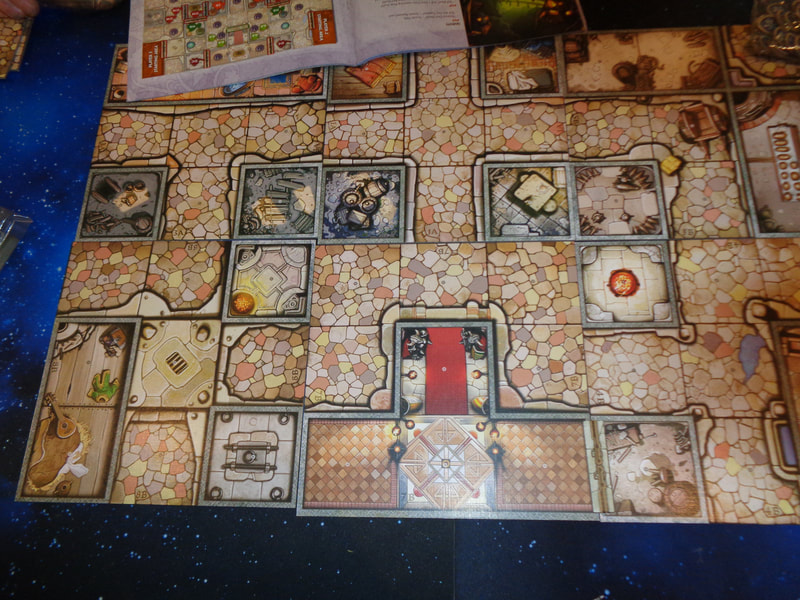
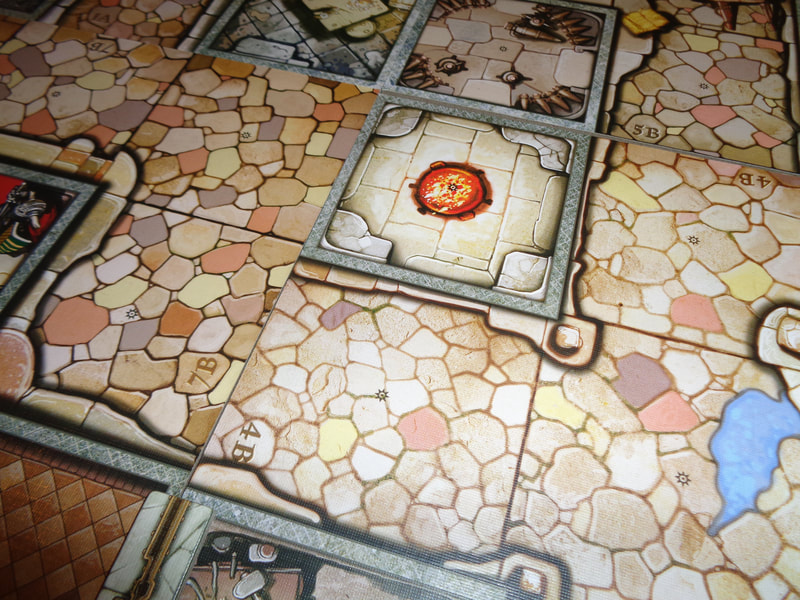
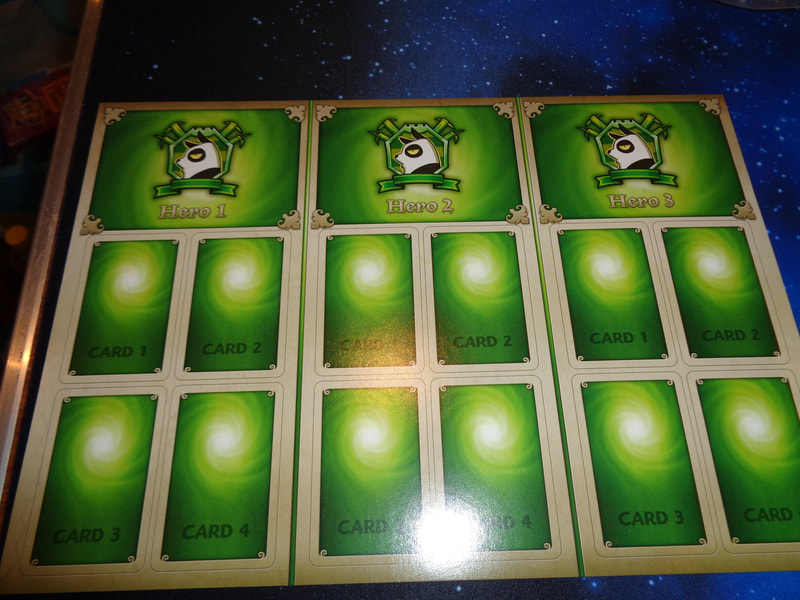
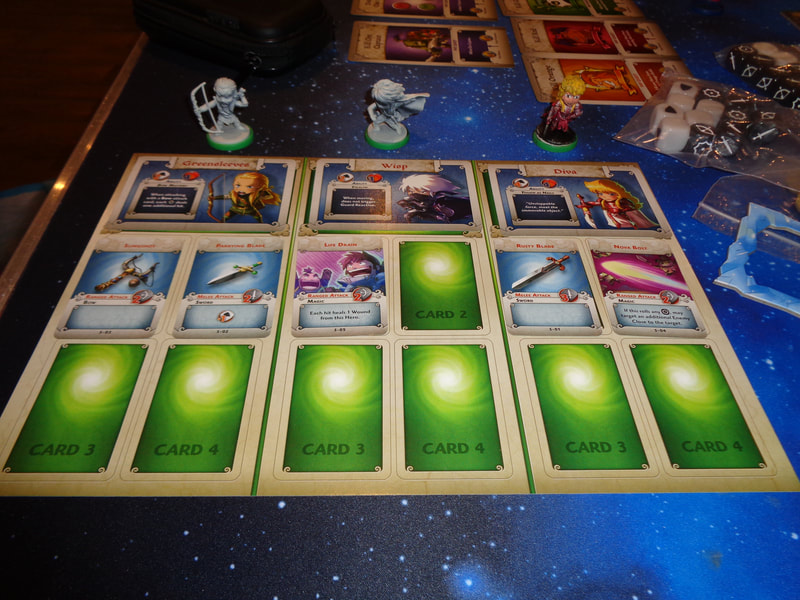
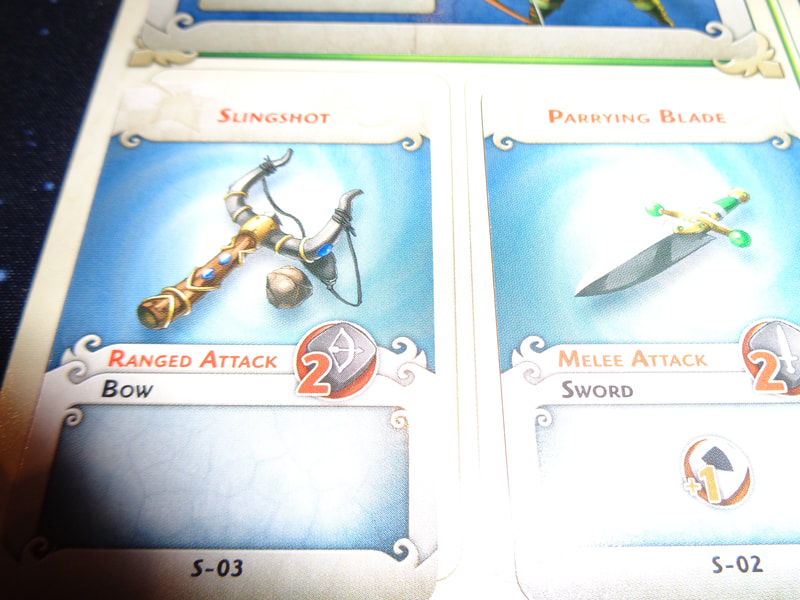
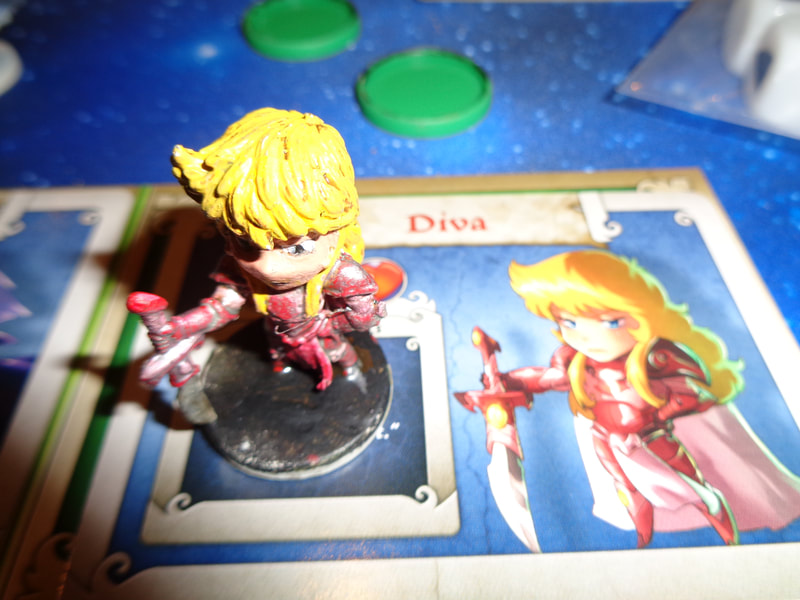
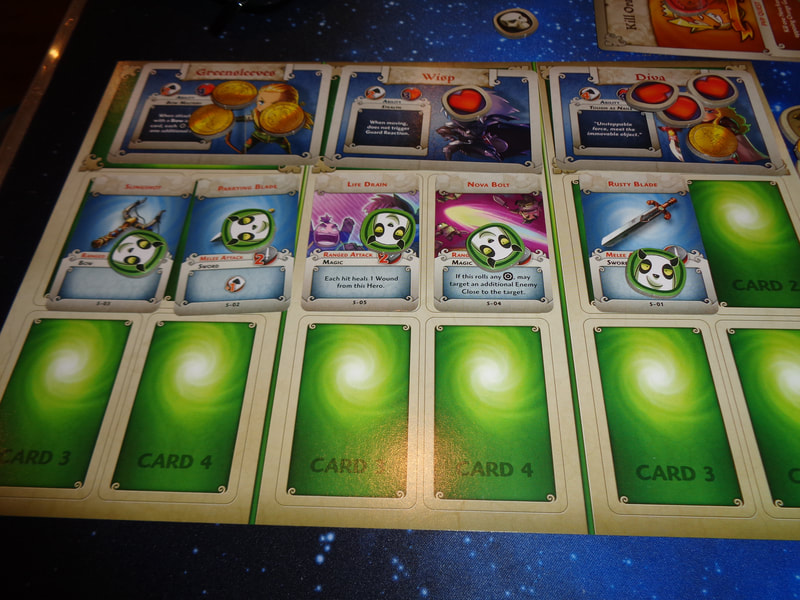
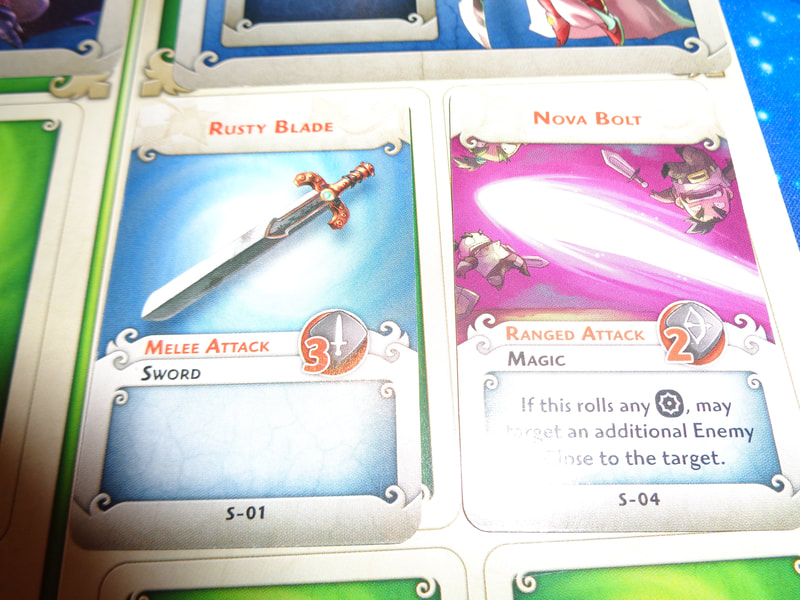
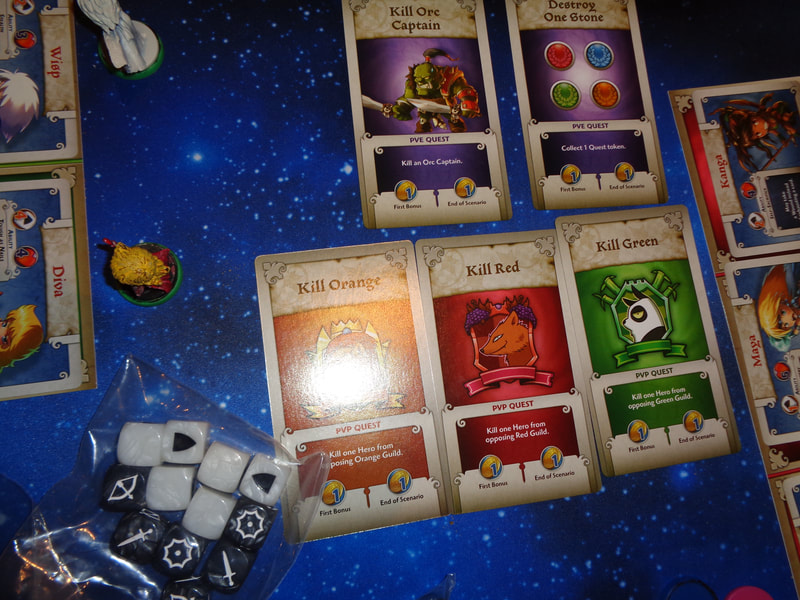
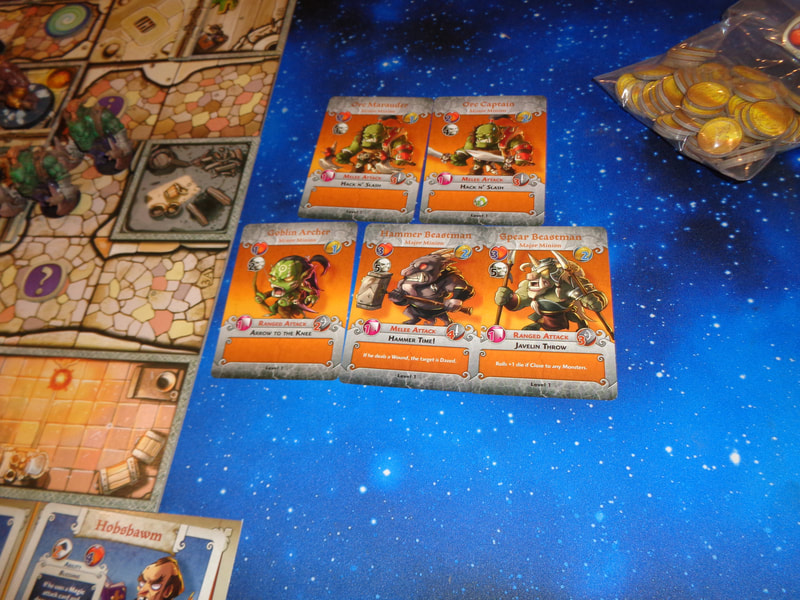
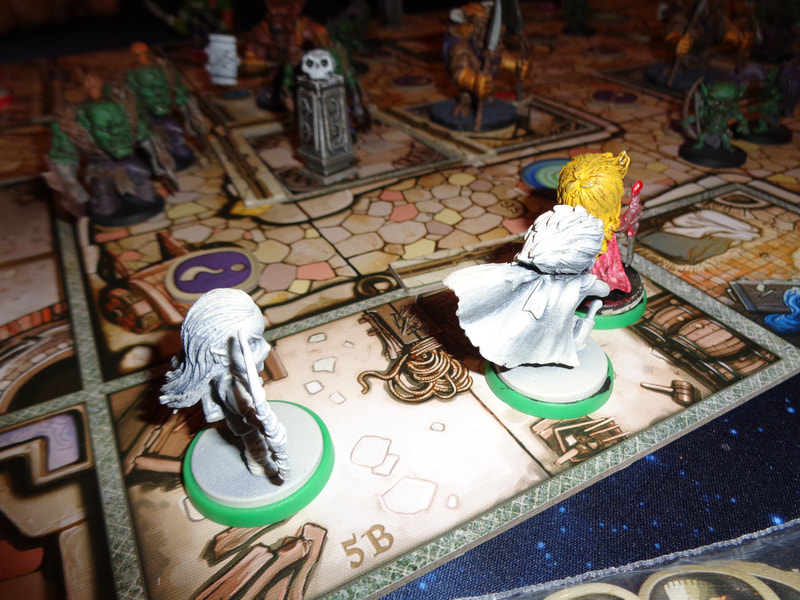
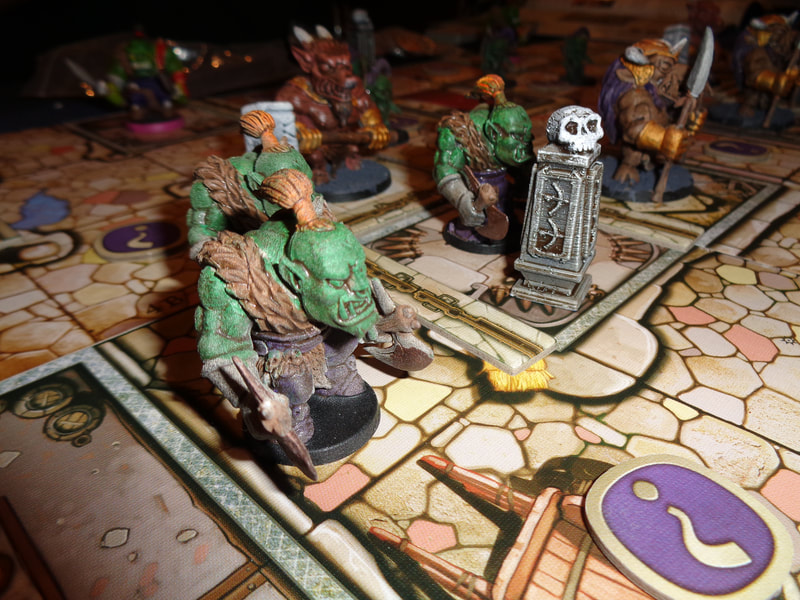
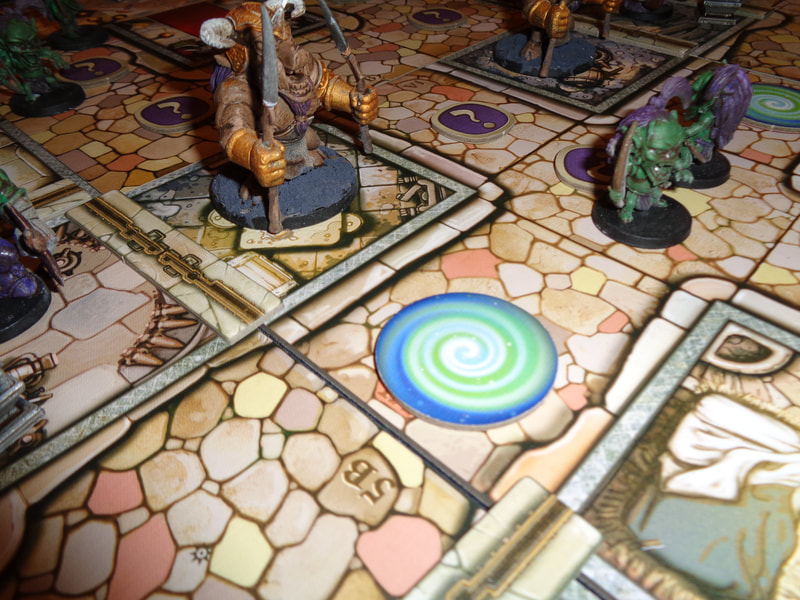
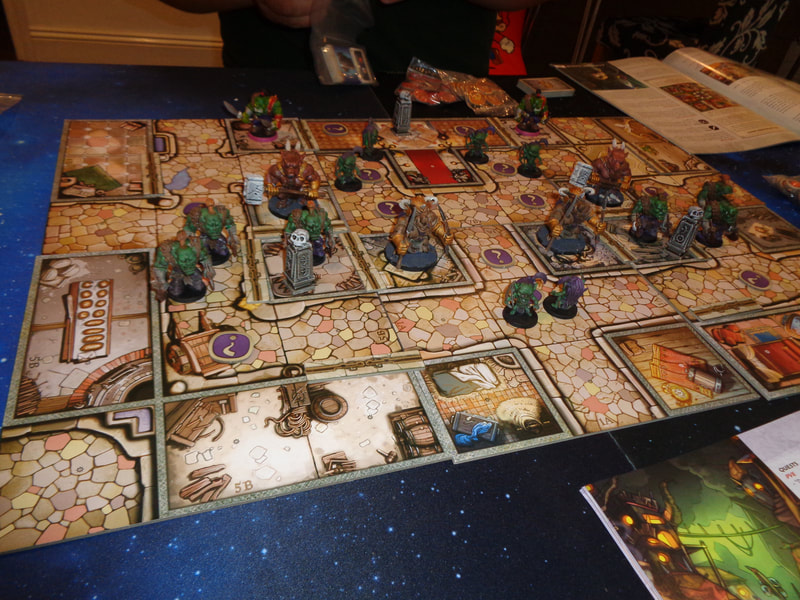
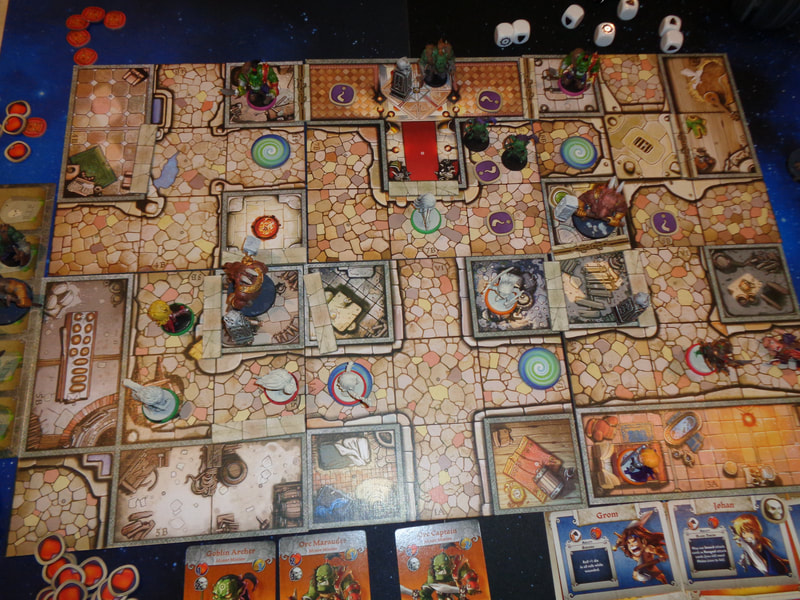
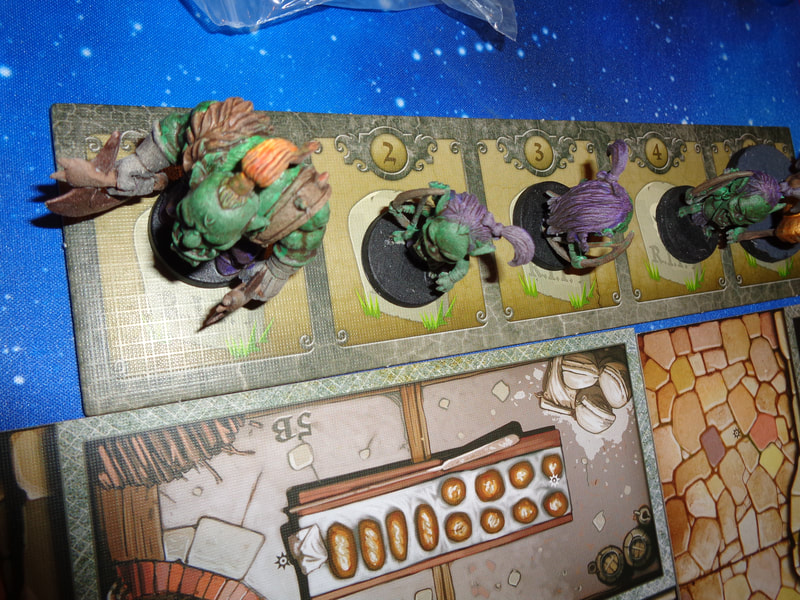
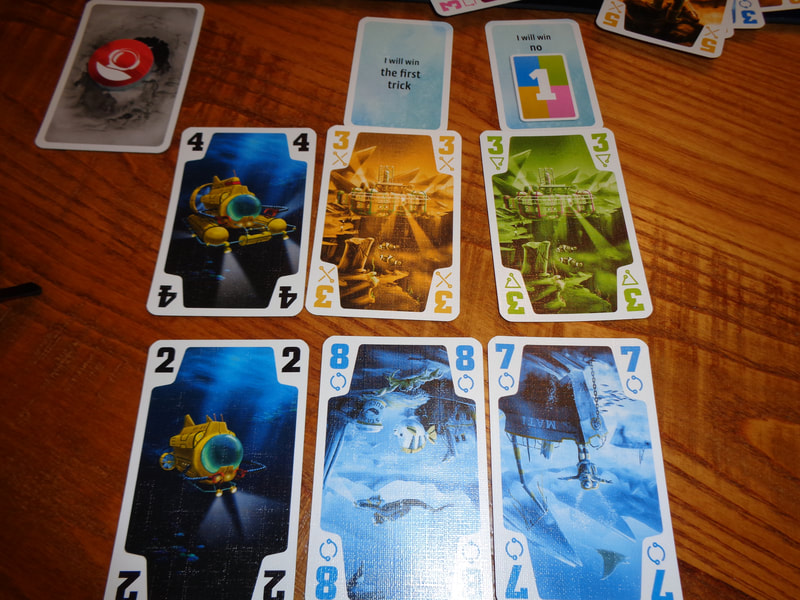
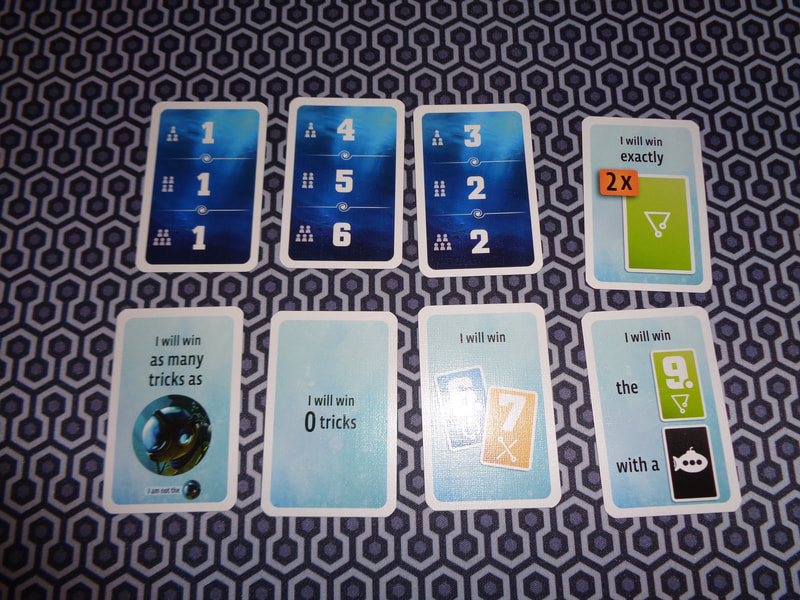
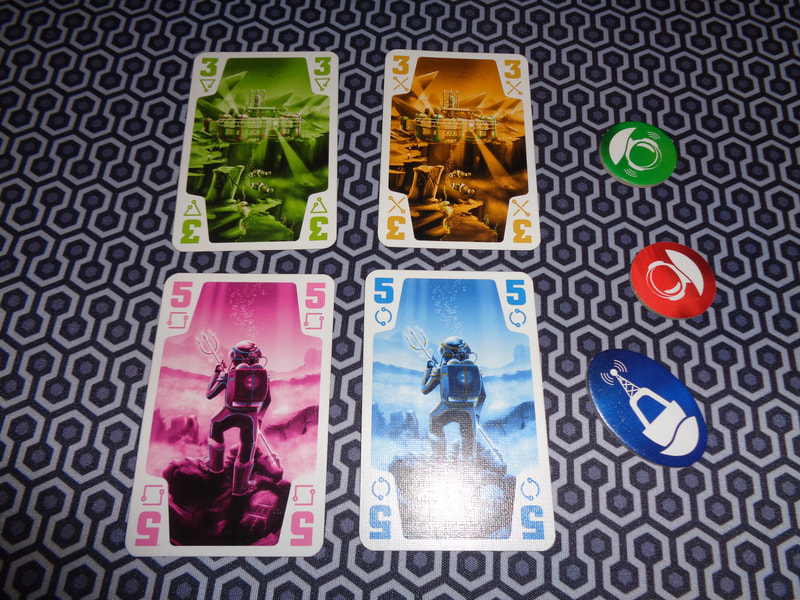
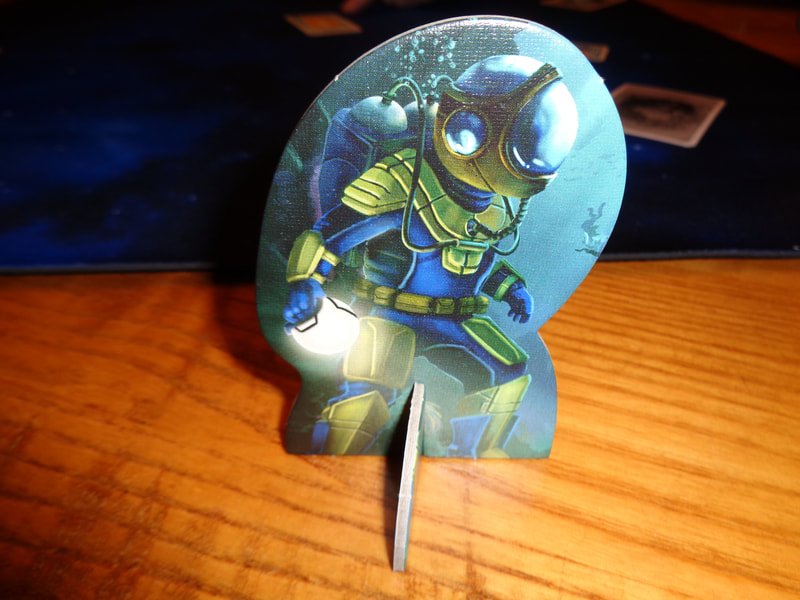
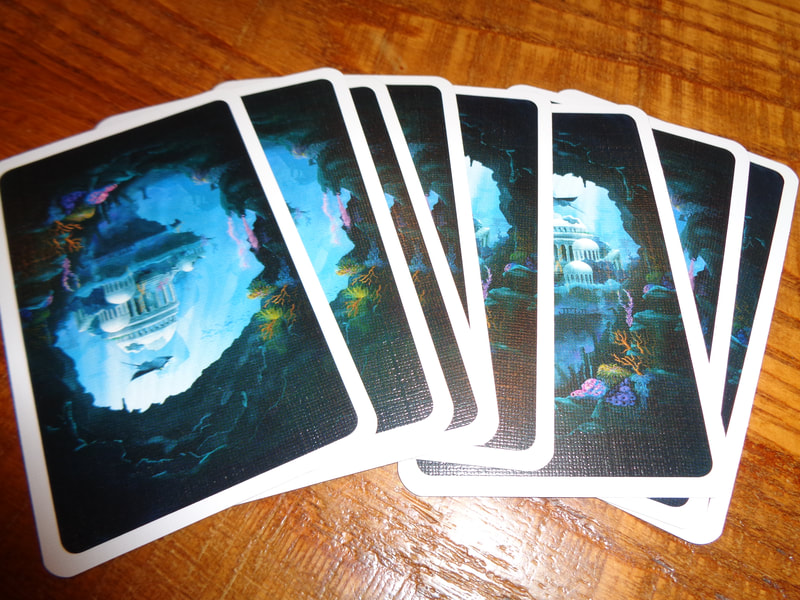
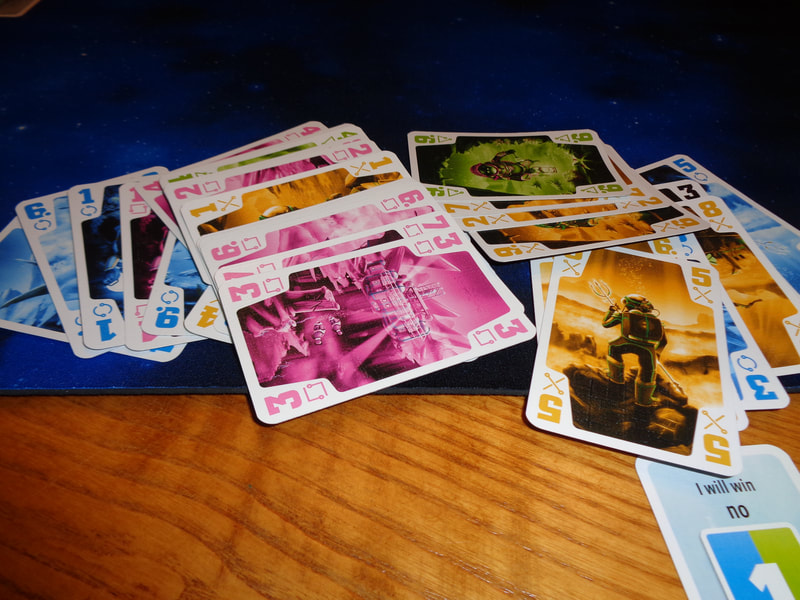
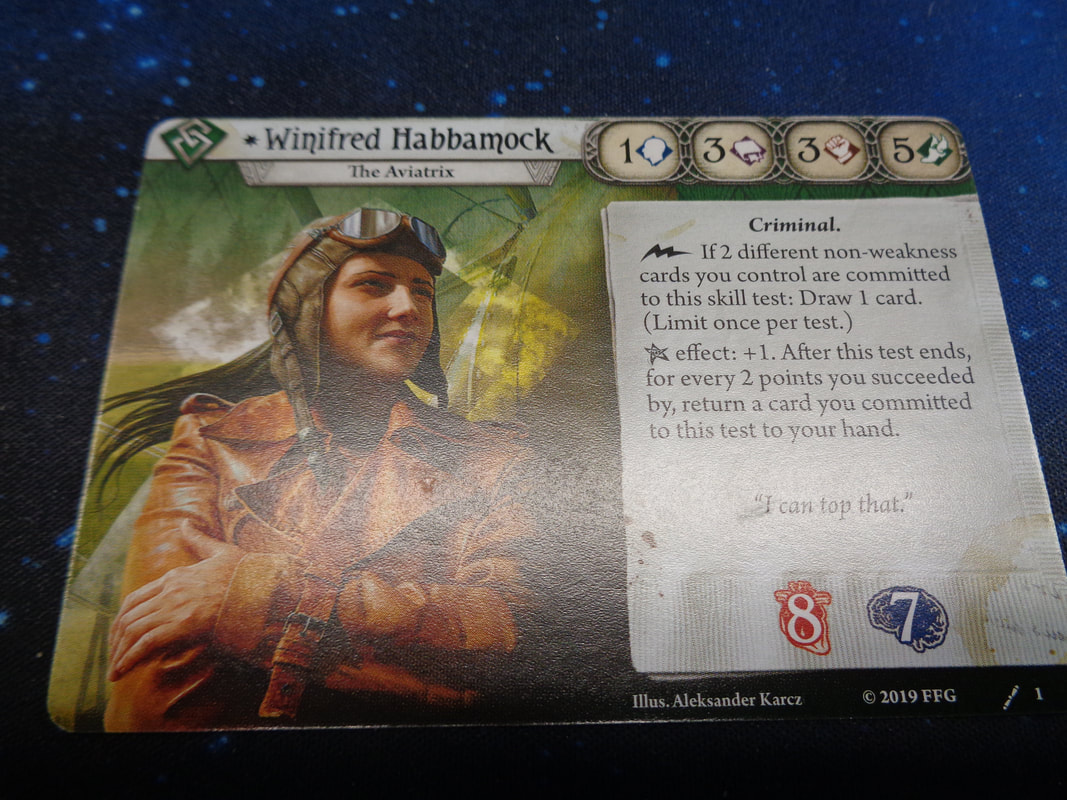
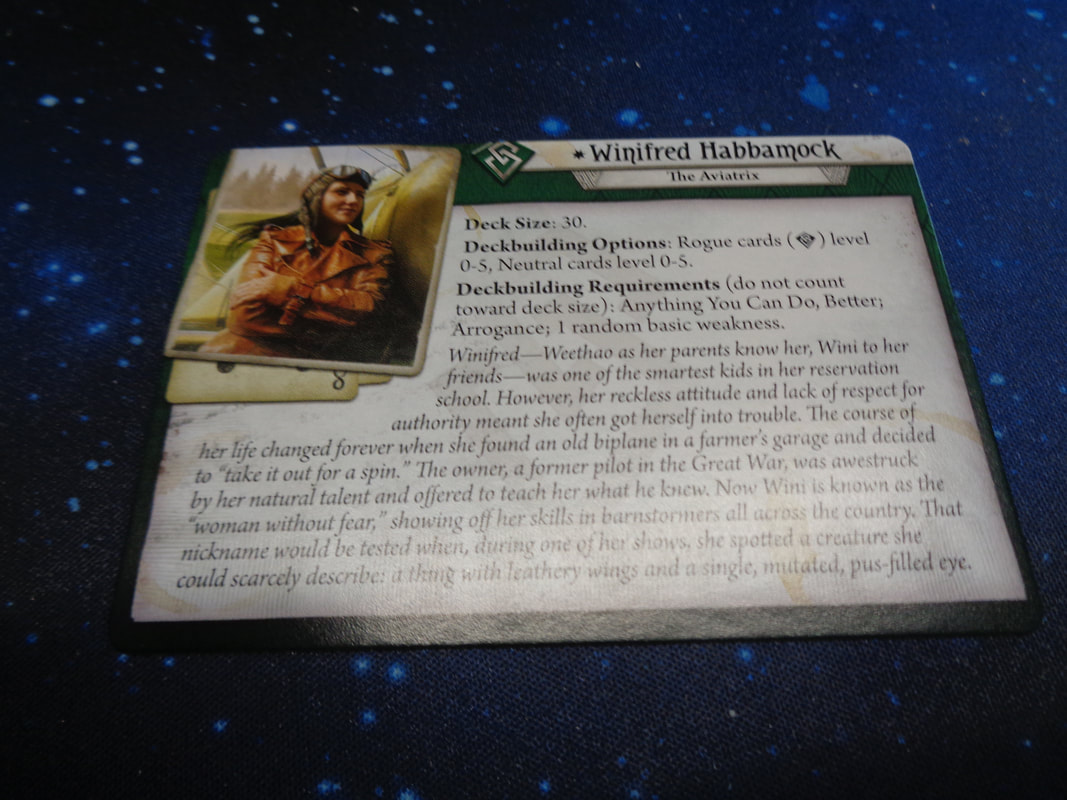
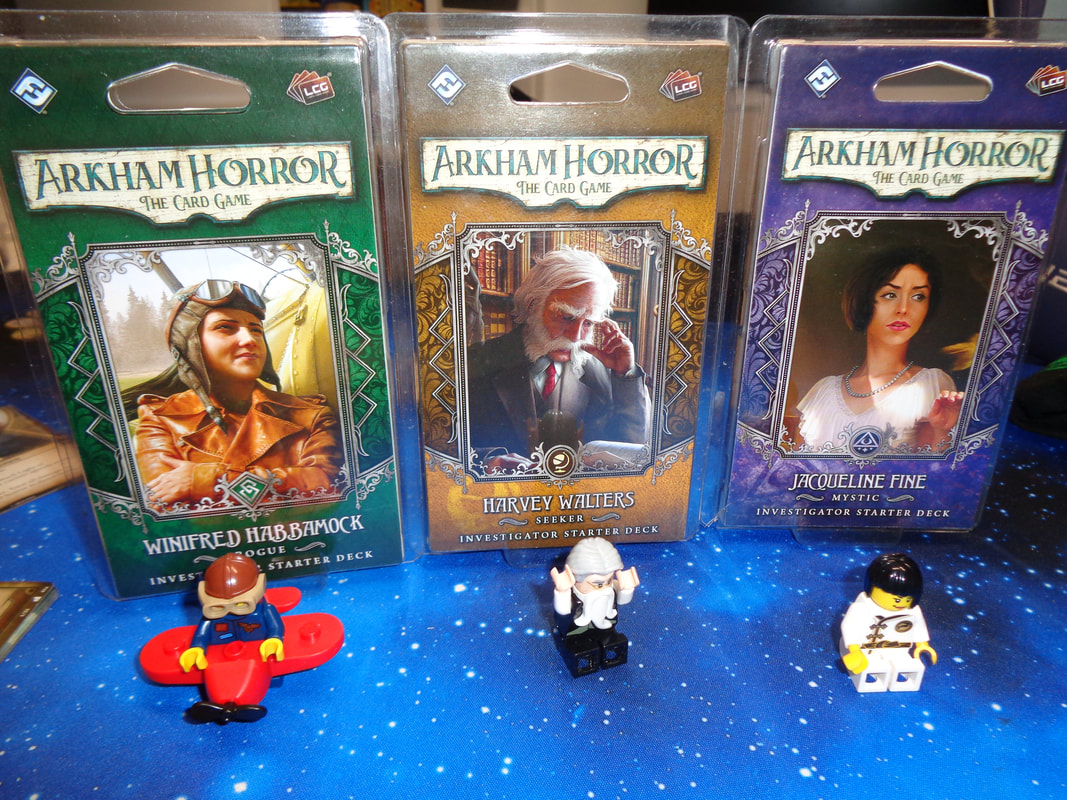
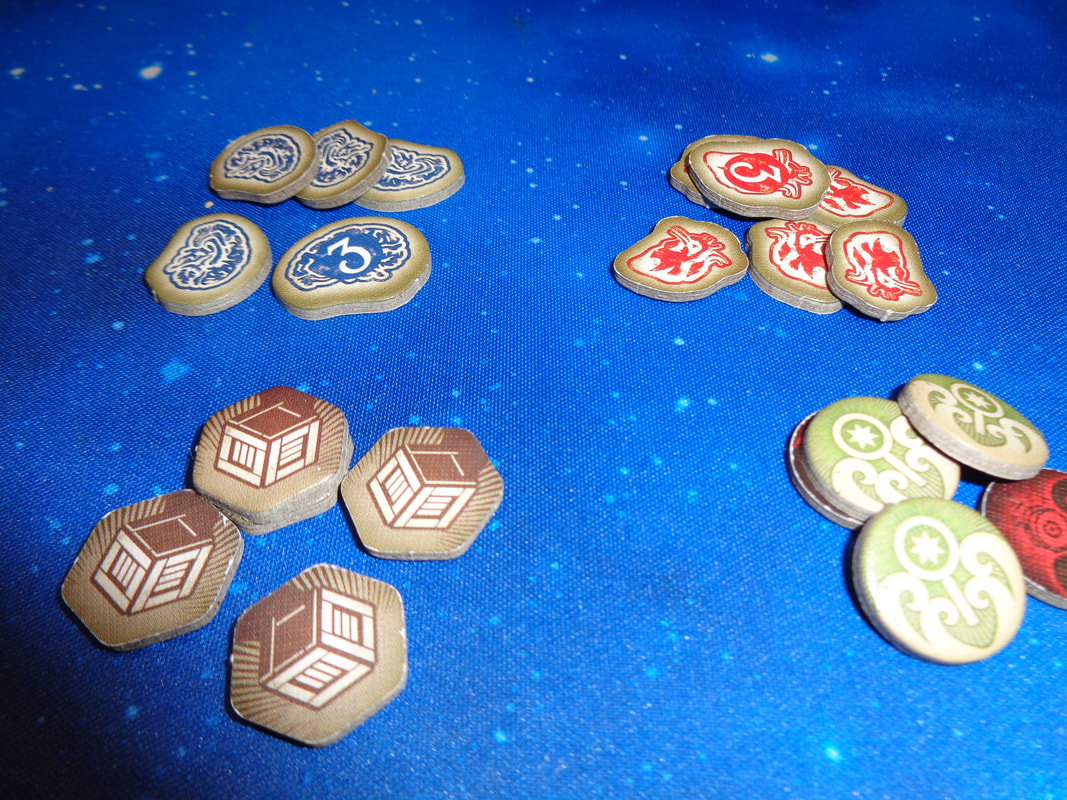
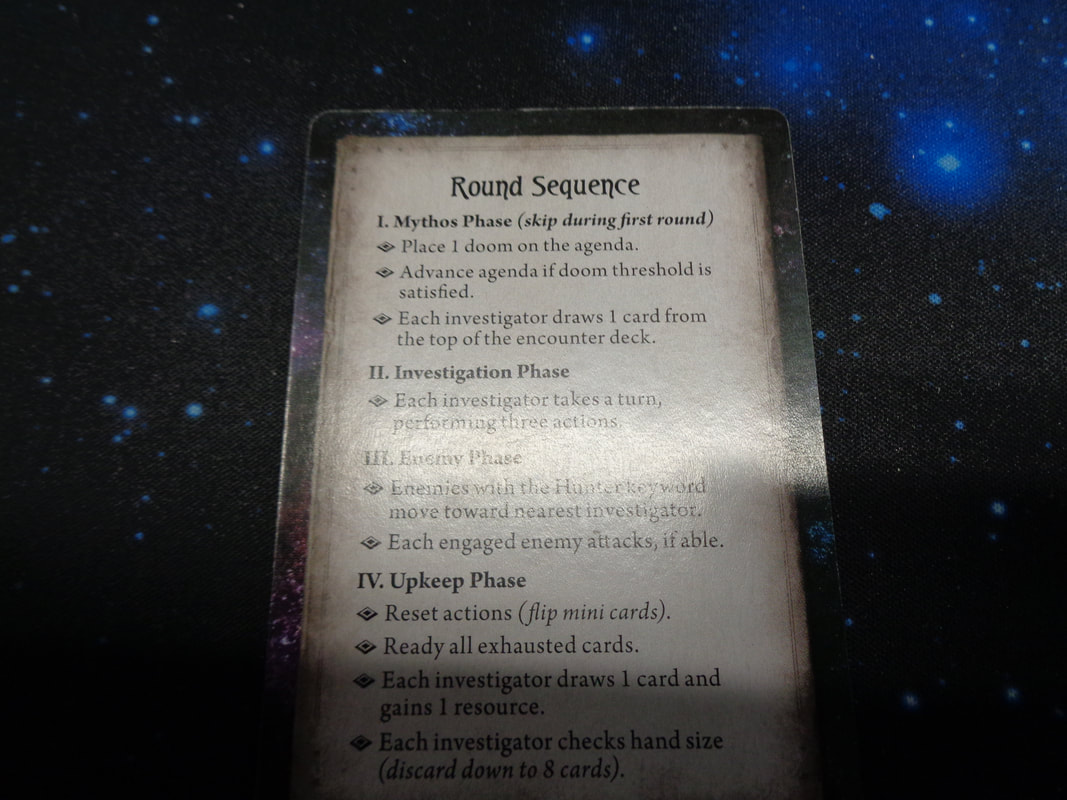
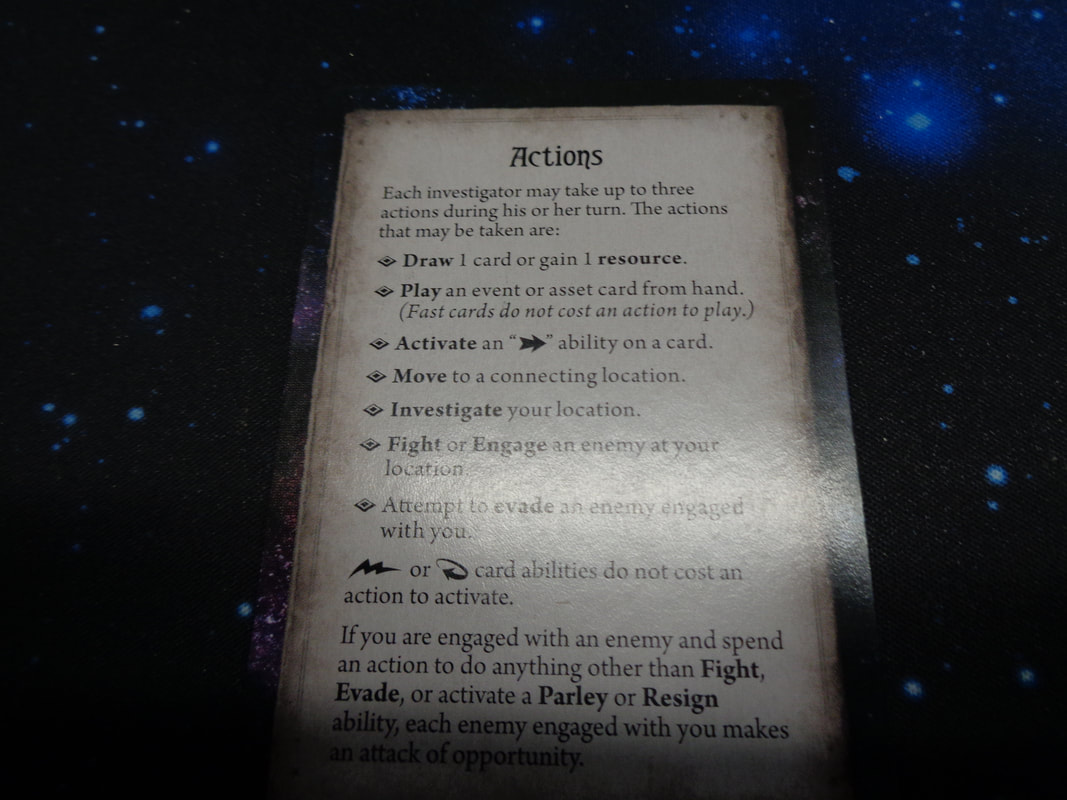
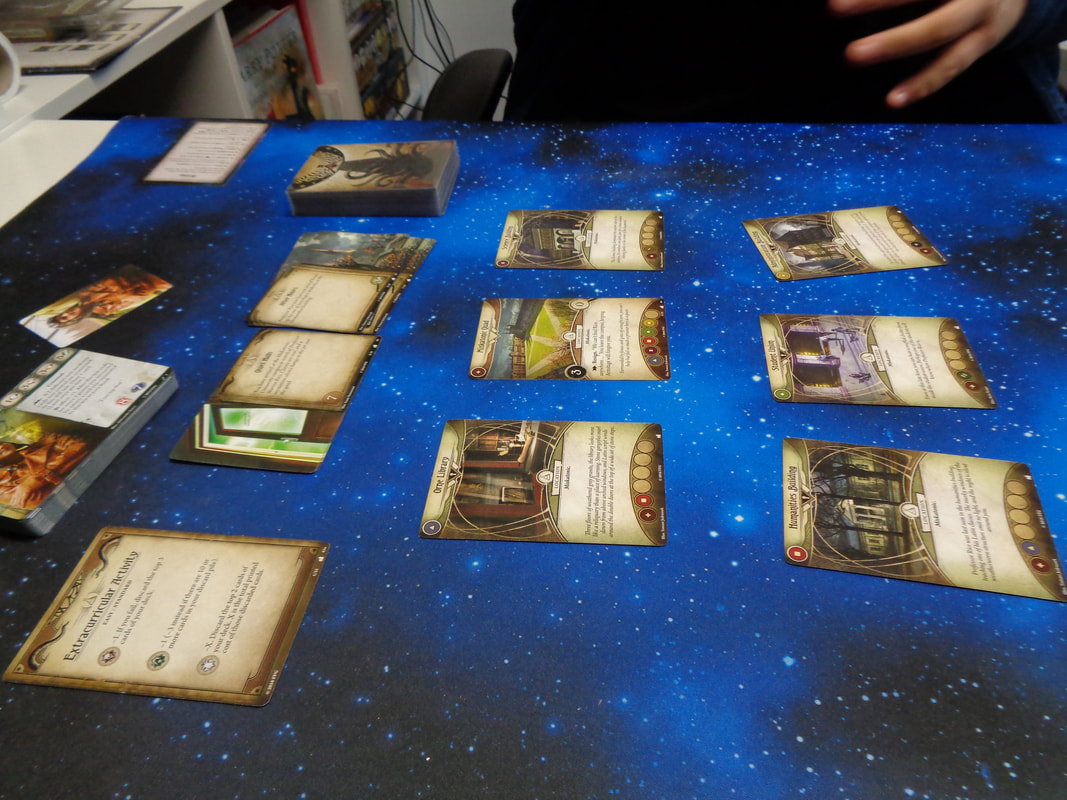
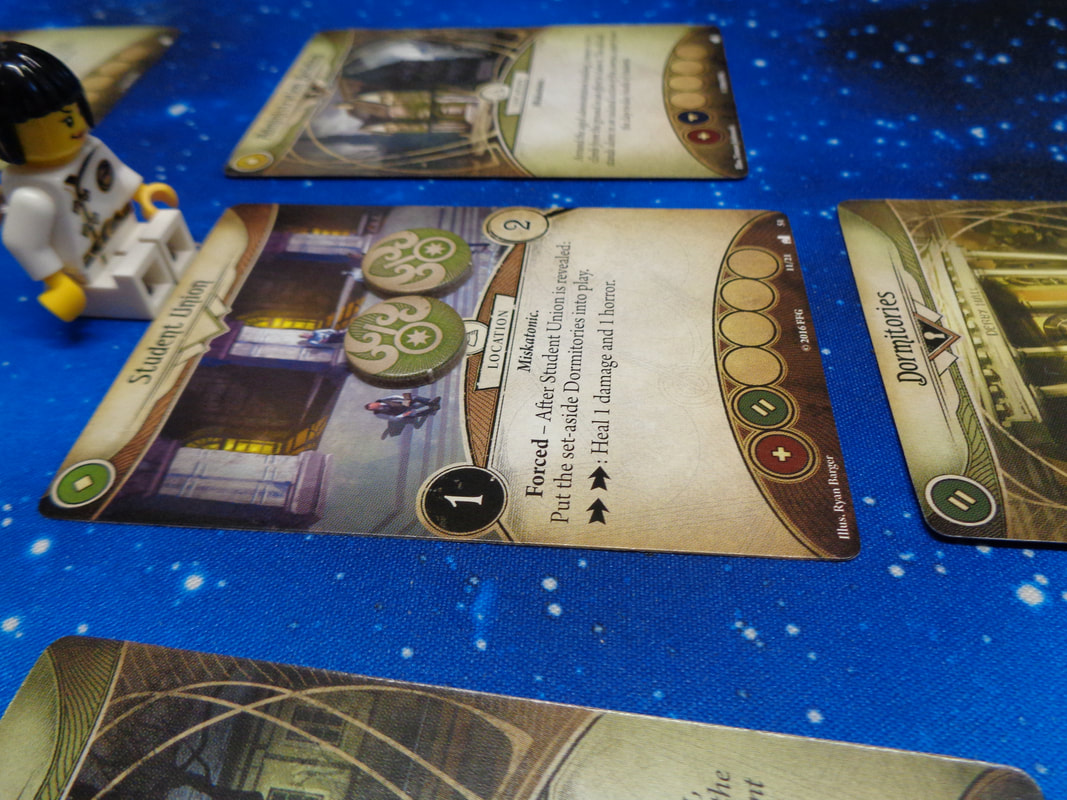
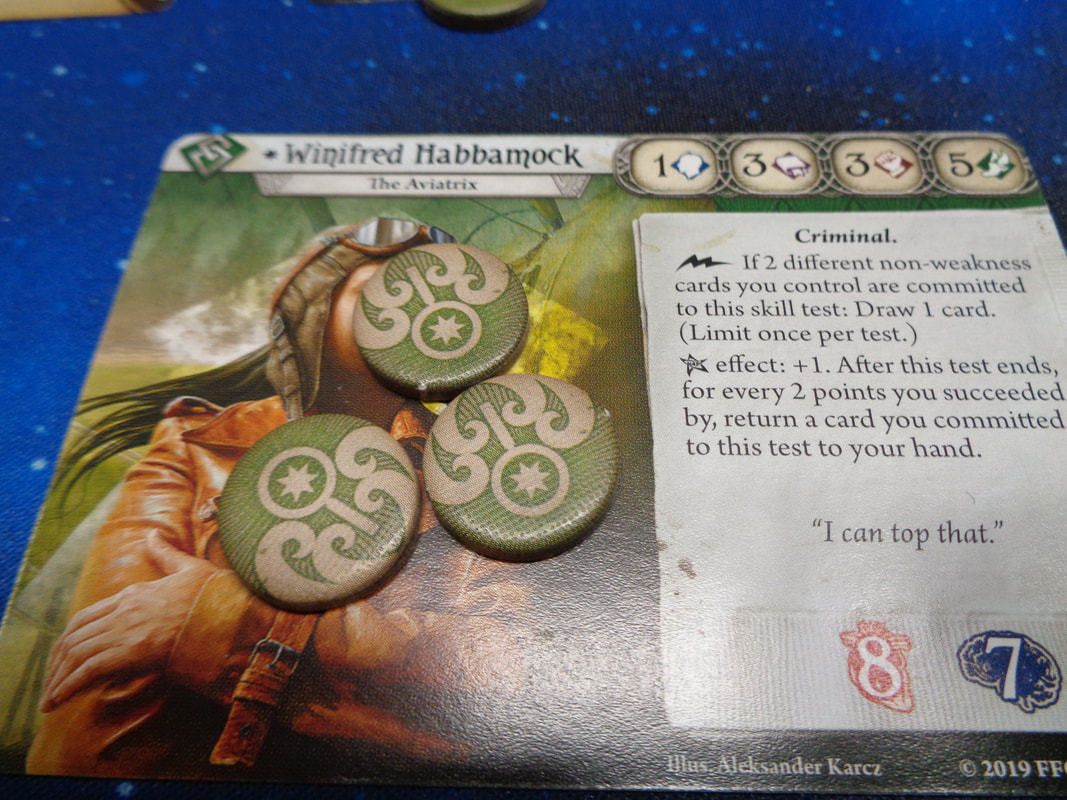
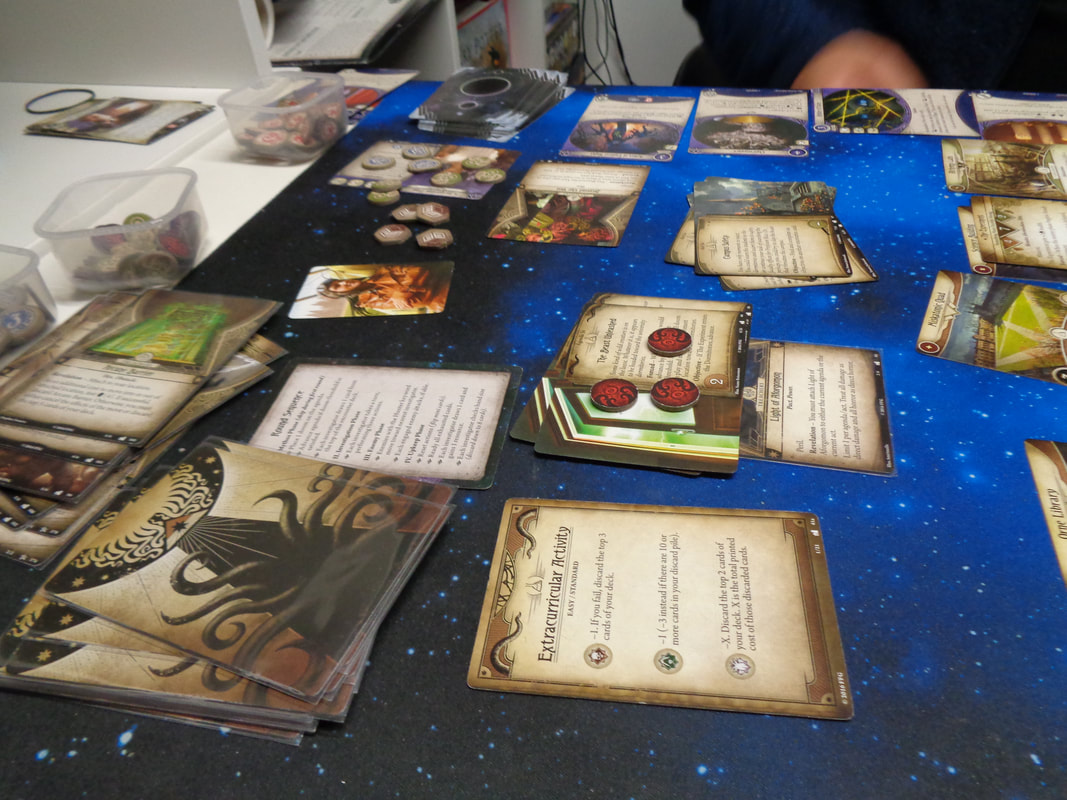
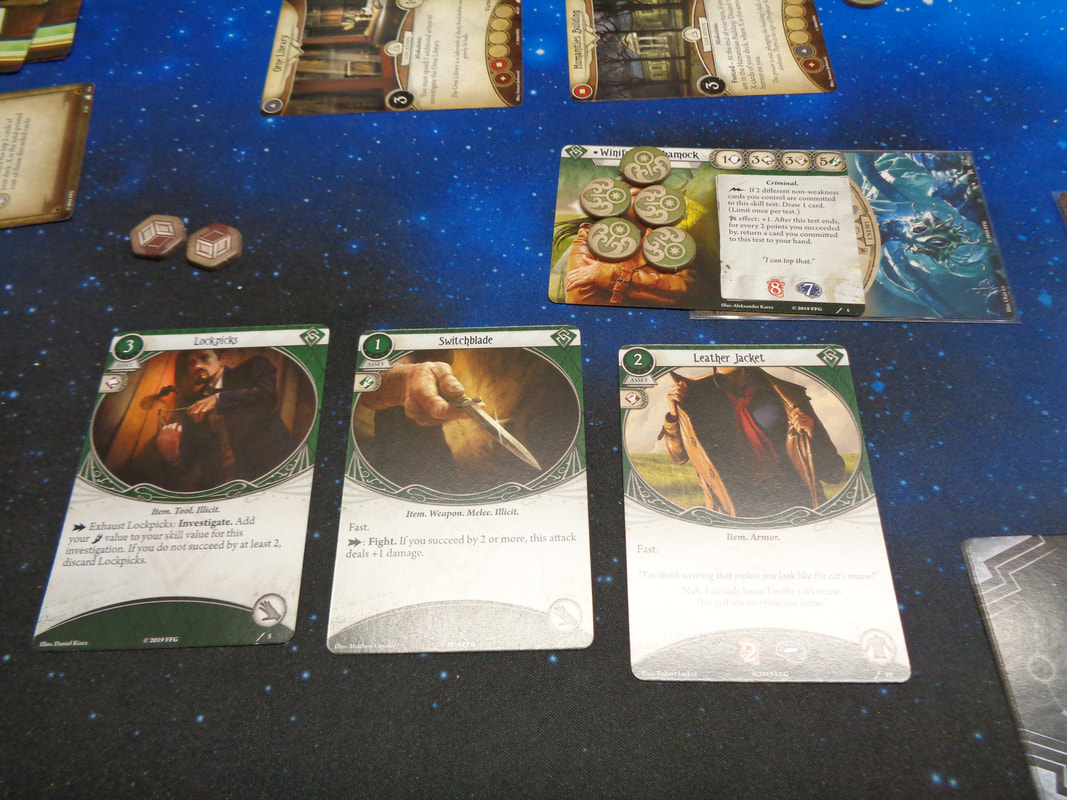
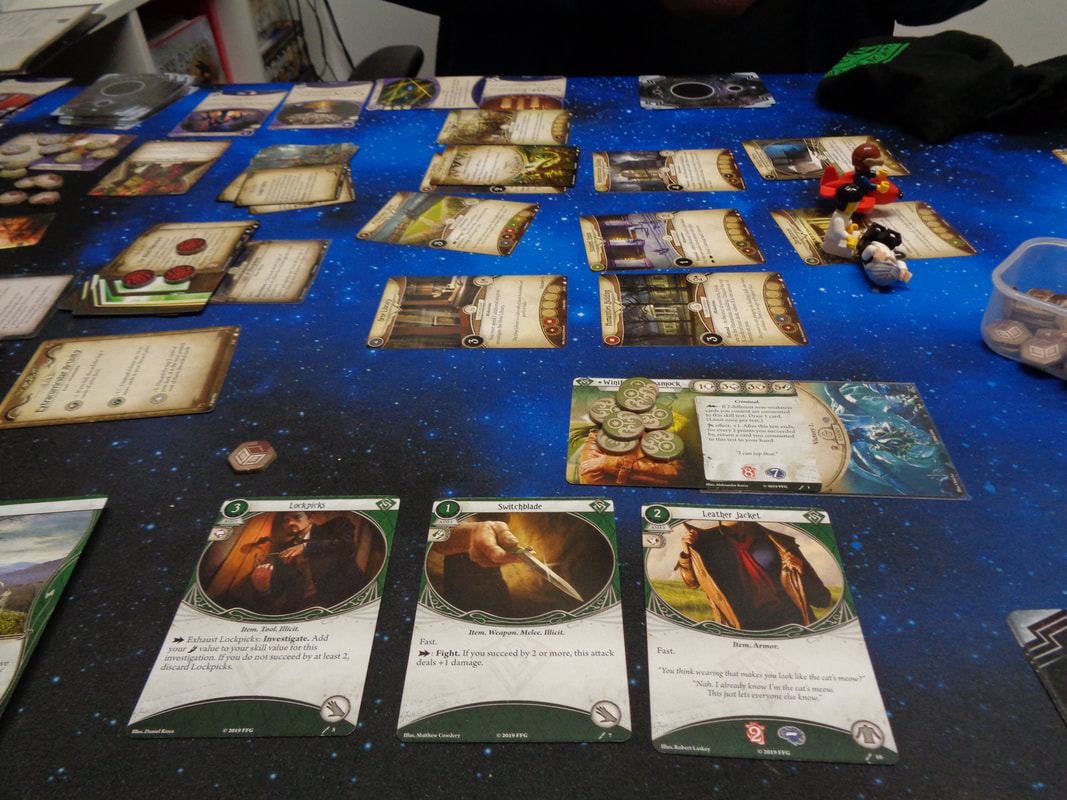
 RSS Feed
RSS Feed
